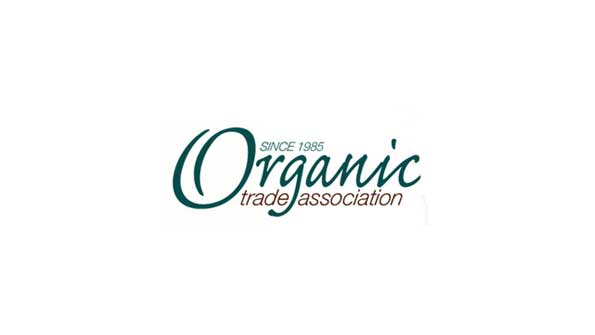Organic Trade Association believes pact will create jobs and advance opportunities for the U.S. organic sector.
July 1, 2014

The Organic Trade Association (OTA) welcomed a new organic equivalency arrangement between the United States and Korea, saying it reopens a critically important Asian market for U.S. organic processed food products, and will create jobs and opportunity for the American organic food and farming sector.
“We extend our thanks and congratulations to the officials at the U.S. Department of Agriculture and the Office of the U.S. Trade Representative for their success after a year of rigorous negotiations,” said Laura Batcha, CEO and Executive Director of OTA. “OTA and the U.S. organic industry have worked diligently to help make this happen. This new pact streamlines the trade of organic processed food products between the two countries while still upholding the highest standards of organic oversight. It’s a win for the organic sectors and for the consumers of both nations.”
Estimates are that under the new streamlined trading system made possible by this arrangement, American exports of organic processed foods and beverages to Korea, which were valued at around $35 million in 2013, will more than double over the next five years.
This is the second organic equivalency partnership formed with a major Asian trading partner within the past year. Last September, the United States and Japan agreed to a similar understanding regarding the bilateral trade of organic products. Batcha said the progress in Asia builds on the landmark equivalency arrangements with Canada in 2009 and the European Union in 2012, the two biggest trading partners for U.S. organic agriculture.
The U.S.-Korea equivalency arrangement was formalized on June 30 in separate signings in Seoul and Washington and went into effect July 1. Under the pact, Korea recognizes USDA’s National Organic Program (NOP) as equivalent to Korea’s organic oversight program. The understanding, which covers organic condiments, cereal, baby food, frozen meals, milk, alcoholic beverages and other processed products, allows processed organic products certified in Korea or in the United States to be sold as organic in either country.
U.S. organic exports to Korea have been on the rise in recent years, as the demand for organic products by Korea’s 50-million plus population, which enjoys the highest per-capita income in Asia, has flourished. However, the lucrative Korean organic market was effectively closed to the U.S. at the end of last year due to a change in Korea’s organic certification requirements.
The organic food market in Korea grew by an average rate of 50 percent from 2006 to 2011, and is expected to expand to $6 billion by 2020. In 2011, organic food represented 10 percent of the total agricultural products market in the country. Koreans are eating more organic packaged foods, organic beverages (especially organic green tea), as well as organic milk and yogurt, along with organic baby food, sweets and bread.
Korea is one of the fastest-growing developed countries in the world with a booming economy. The Korean economy is heavily engaged in international trade, and Korea ranks as one of the world’s top importing nations. Korea is the fifth-largest foreign market for U.S. agricultural products. The organic equivalency pact is in addition to the U.S.-Korea Free Trade Agreement signed in March 2012.
The new arrangement with Korea comes as demand for organic products in the U.S. is also booming, Organic sales in the United States totaled $35.1 billion in 2013, a new record and up 12 percent from a year ago. Batcha said that while the robust organic market in the United States has created jobs in the organic sector at four times the national rate, exports are critical for farmers and processors and will spark additional growth.

You May Also Like


